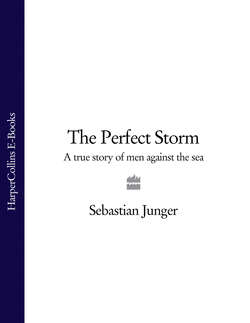Читать книгу The Perfect Storm: A True Story of Men Against the Sea - Sebastian Junger - Страница 7
FOREWORD
ОглавлениеRECREATING the last days of six men who disappeared at sea presented some obvious problems for me. On the one hand, I wanted to write a completely factual book that would stand on its own as a piece of journalism. On the other hand, I didn’t want the narrative to asphyxiate under a mass of technical detail and conjecture. I toyed with the idea of fictionalizing minor parts of the story—conversations, personal thoughts, day-to-day routines—to make it more readable, but that risked diminishing the value of whatever facts I was able to determine. In the end I wound up sticking strictly to the facts, but in as wide-ranging a way as possible. If I didn’t know exactly what happened aboard the doomed boat, for example, I would interview people who had been through similar situations, and survived. Their experiences, I felt, would provide a fairly good description of what the six men on the Andrea Gail had gone through, and said, and perhaps even felt.
As a result, there are varying kinds of information in the book. Anything in direct quotes was recorded by me in a formal interview, either in person or on the telephone, and was altered as little as possible for grammar and clarity. All dialogue is based on the recollection of people who are still alive, and appears in dialogue form without quotation marks. No dialogue was made up. Radio conversations are also based on peoples recollections, and appear in italics in the text. Quotes from published material are in italics, and have occasionally been condensed to better fit the text. Technical discussions of meteorology, wave motion, ship stability, etc., are based on my own library research and are generally not referenced, but I feel compelled to recommend William Van Dorn’s The Oceanography of Seamanship as a comprehensive and immensely readable text on ships and the sea.
In short, I’ve written as complete an account as possible of something that can never be fully known. It is exactly that unknowable element, however, that has made it an interesting book to write and, I hope, to read. I had some misgivings about calling it The Perfect Storm, but in the end I decided that the intent was sufficiently clear. I use perfect in the meteorological sense: a storm that could not possibly have been worse. I certainly mean no disrespect to the men who died at sea or the people who still grieve them.
My own experience in the storm was limited to standing on Gloucester’s Back Shore watching thirty-foot swells advance on Cape Ann, but that was all it took. The next day I read in the paper that a Gloucester boat was feared lost at sea, and I clipped the article and stuck it in a drawer. Without even knowing it, I had begun to write The Perfect Storm.
